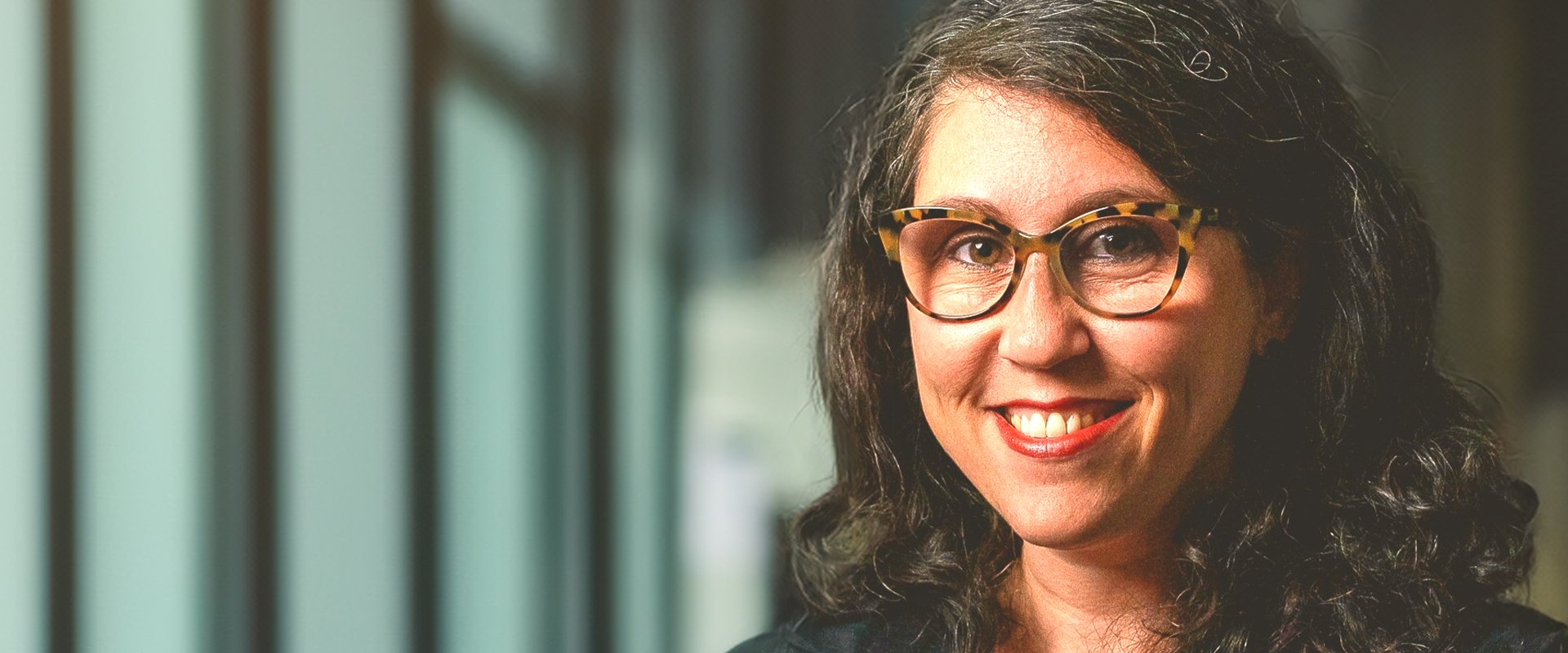
A great leader
needs empathy,
resilience,
and innovation
In our latest Up-Close interview, we speak with Shiri Mosenzon Erez, Chief Product Officer (former) at Ocado Group.
Can you give us a whistle-stop tour of your career to date, sharing your career highlights and how they have influenced you as a leader?
Absolutely. I started my career at Sodexo, a food catering company. My role involved analysing how we could increase productivity. By mapping processes and identifying bottlenecks, we discovered that by chilling the rice at a different stage, we could triple our meal production. This experience was a highlight of my early career, as it introduced me to the Theory of Constraints and lean methodology and the importance of understanding what adds value vs whats non value add.
After my MBA at INSEAD, I joined Tesco into their online business. A highlight was the step changing of the automated online solution at Tesco. The challenge was how to create a winning customer proposition and whilst achieving that, also achieving overall system profitability. My team and I mapped out and analysed the process, gained clarity on where the opportunities were to create value and reduce costs. In one of Tesco’s online fulfillment centres, stepchanges could be achieved without changing the system itself. This turnaround was another significant highlight, demonstrating the power of process and mindset adjustments.
Another memorable highlight from my time with Tesco was celebrating Christmas with my team while running operations in a store. It was a different kind of highlight, focusing on teamwork and the operational side of the business. I often share with tech team members how significant it is to spend time with customers and with front line teams directly rather than just reading into data and observing.
From Tesco I moved to Fabric, where I was the first to join the leadership team. One of my proudest moments was seeing the first AI-driven Fabric robot moving groceries around. This product, which started as a concept in 2016, became a reality with live micro-fulfilment and fresh direct orders delivered from a Fabric space by 2018.
Later, at Ocado, I became the Chief Product Officer. Speaking at Shoptalk as Ocado’s chief officer and showcasing the latest robotic picking technology was a significant highlight for me. We developed a new 3D-printed robot, and I was very proud of our innovative approach and short lead time orders.
How has your journey influenced your approach to building great products?
My experiences have profoundly shaped how I approach product development. Understanding the theory of constraints and identifying non-value-adding activities has been crucial. The vast majority of activities we do and that companies do, are not value-adding, so pinpointing those that are is essential.
During my time at Tesco, I learned about the concept of a “decision diet” for users, which was a key product principle for me. Staying data-driven and relying on strong relationships have been foundational to my approach.
What do you believe people misunderstand most about leadership?
A common misunderstanding about leadership is the importance of communication, especially across different cultures and backgrounds. I recently read "The Culture Map" by Erin Meyer, which explores these differences. Even within seemingly similar cultures, communication styles can vary greatly, affecting feedback and overall understanding. The basis of leadership is effective communication, and recognising these cultural nuances is crucial. Additionally, understanding the dynamics between extroverts and introverts is important so that leaders can build and grow high performing individuals into members of a high performing team as well.
“When hiring , I look for excellent IQ and excellent EQ, covering communication skills and emotional intelligence.”
What’s the most exciting thing happening in the retail tech and supply chain industry right now?
The most exciting developments are in generative AI and robotics. Generative AI has significantly enhanced human output and decision-making. It’s about solving business problems where AI can be incredibly helpful.
Robotics is another area evolving rapidly, particularly in dexterity. Companies like Ocado are developing advanced vision systems and robotic arms. Humanoids are also emerging globally, promising exciting innovations in the near future.
What’s your view on the rise of the CPTO role?
The rise of the CPTO role is a healthy development. It facilitates faster decision-making anchored in value and proposition, supported by strong engineering. It also helps avoid conflicts between product and engineering, which is a common challenge in the industry. The CPTO role requires business acumen and strong leaders in both product and engineering. This will help companies move faster and be more effective if only by clearing the CEOs headspace from the product/engineering arbitration.
What do you look for when hiring talent?
When hiring , I look for excellent IQ and excellent EQ, covering communication skills and emotional intelligence. I seek individuals who are smart, curious, and look beyond their remit. They should be able to ask insightful questions about others' roles and have strong opinions backed by data.
I value diversity of thought to avoid echo chambers and build high-performing teams. Transferable skills are more important than experience, though experience is a plus. I also assess how candidates talk about their space, their awareness of their knowledge gaps (which we all have!), and their learning agility.
What makes a great leader?
A great leader needs empathy, resilience, and innovation. Empathy involves understanding others' perspectives, while resilience helps handle stress and challenges. Innovation is about connecting ideas to create something impactful.
Collaboration and responsiveness are also key traits. A good product leader should have a growth mindset, excellent communication skills, and be data-driven and innovative. Technical thinking and business thinking are both crucial and together they are more likely to bring the newest ideas, so a balance is essential.
What’s the most important thing you’ve learned about the mistakes that growth companies make in product?
The most important lessons I've learned are the value of focus and communication. In growing companies, it's easy to lose focus, but it's crucial to have the right people to build and launch products successfully.
Communication becomes more challenging as a company grows. It's essential to ensure everyone understands the company’s goals and their role in achieving them. Using methodologies like OKRs and sharing a clear narrative helps align the team’s efforts. Mistakes often occur when there’s a lack of focus and communication.
Do you have any books, podcasts, or other content that you find valuable and draw inspiration from?
For books, “The Goal” by Eli Goldratt is a great one. It's insightful on processes and bottlenecks. Another one I recommend is “The Hard Thing About Hard Things” by Ben Horowitz. Every page feels relatable, and it's a must-read for anyone in business. “Power for All” by Julie Battilana and Tiziana Casciaro is also fantastic, particularly for women. It breaks down how decisions are made within organisations, which is often more complex than it seems. I found it so useful that I even wrote a book review on it.
As for podcasts, I really enjoy “Lenny's Podcast”. He's a former product leader at Airbnb and brings on CEOs, founders, and CPOs to discuss their successes and failures. It's incredibly insightful. Another one I follow is The “CPG Guys”, which is great for understanding the retail ecosystem and how data is transforming the industry. For newsletters, CB Insights is invaluable. Even the free version gives you great ideas and insights. I also follow The Economist for broader economic and business trends.


